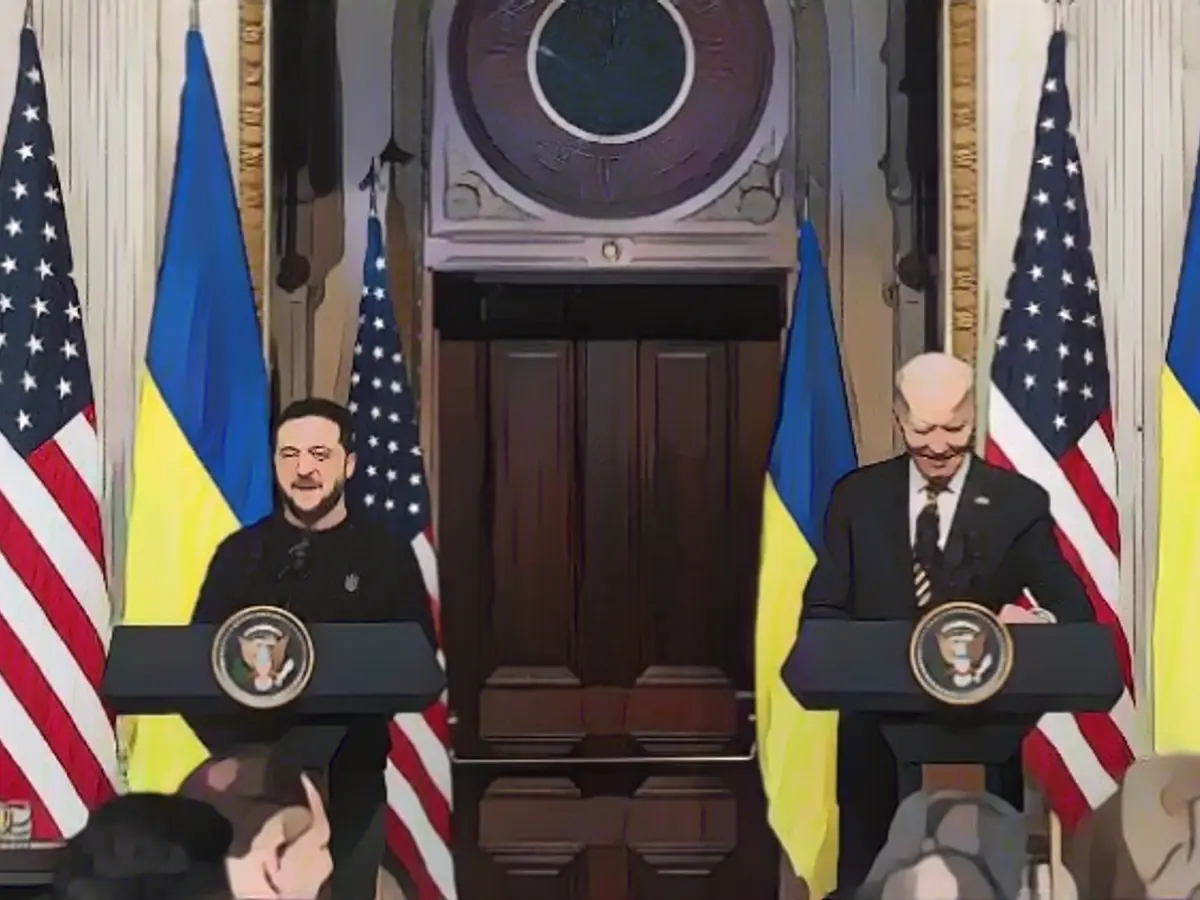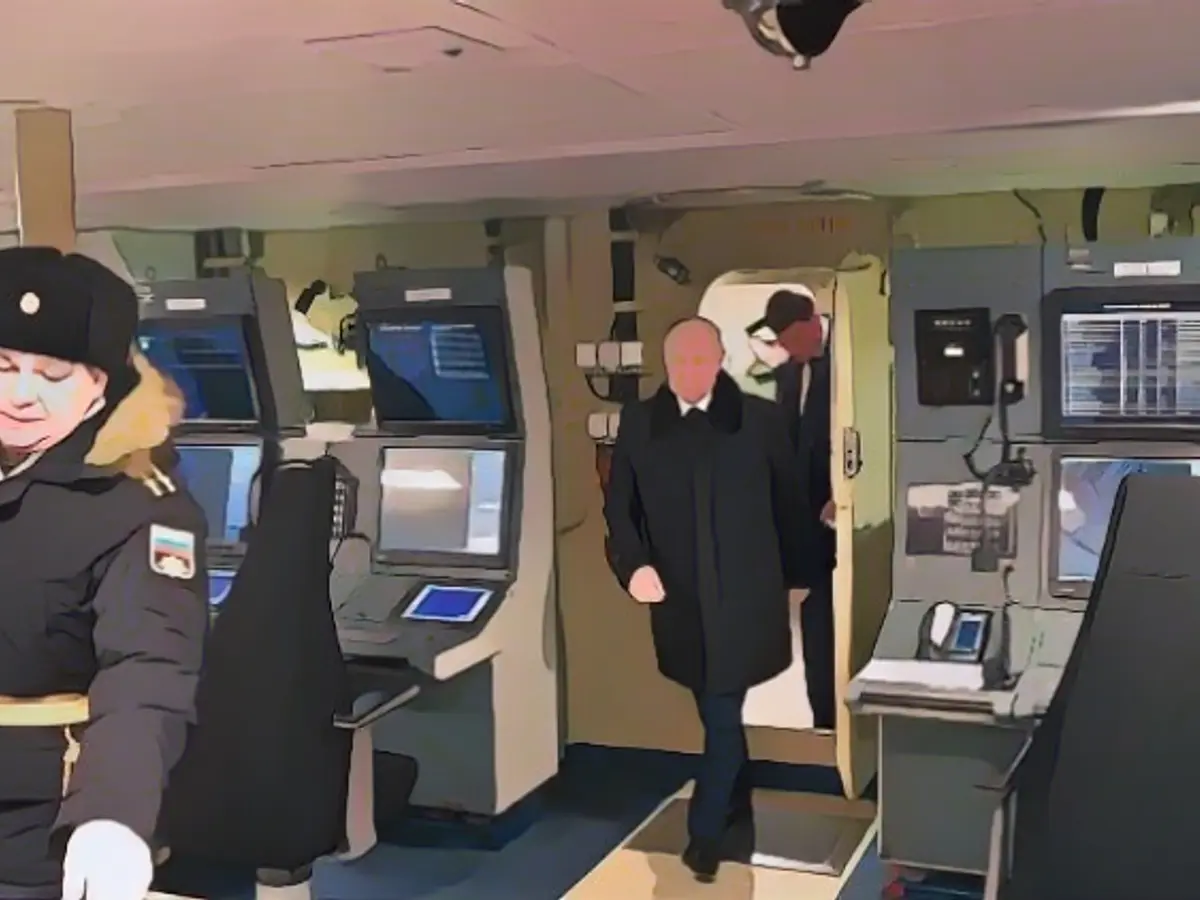Senate Holds Off on Holiday Break for Ukraine Aid Dispute
In a twist of political drama, the United States Senate has decided to delay its Christmas break, pushing back their winter recess, in order to work on the contentious topic of providing Ukraine with $61 billion in military aid for the upcoming year. This move comes as Democrats, led by President Biden, push for aid, while Republican opposition impedes progress due to domestic political reasons.
"The Senate will return on Monday," Senate Majority Leader Chuck Schumer announced on Thursday, postponing the planned winter break. This decision provides negotiators with more time to reach an agreement, as they aim to secure the support of both parties during this critical period.
Originally planned to reach an agreement by Thursday evening, the Senators have been unable to come to a consensus about further aid for Ukraine. The Democrats back the $61 billion military aid package, while Republicans, driven by demands for further concessions on U.S. immigration policy and securing the border with Mexico, have voiced their objection to the proposal.
If an agreement is reached in the Senate, it still needs to pass the House of Representatives. House Republicans lead by Chairman Mike Johnson have expressed their skepticism about an agreement. Nevertheless, in theory, MPs could be summoned back to Washington for a vote if the Senate succeeds in reaching an agreement.
The United States has already provided or promised over $44 billion in military aid to Ukraine since Russia launched its war of aggression. Withstanding the domestic political tensions in Washington and the opposition of some Republicans to further aid for Ukraine, could have severe consequences for Kiev and its western allies.
Related Content
Insights
- While the Democrats and Republicans disagree on providing further aid for Ukraine, the bipartisan support for Ukraine remains strong. U.S. Under Secretary of State Victoria Nuland is optimistic about Congress backing new aid for Ukraine, emphasizing the cross-party support across the country.[2]
- Negotiations have been stalled due to disagreements over immigration funding and reform, which is part of a larger spending package that includes aid to Ukraine, Israel, and Taiwan.[2]
- Ukrainian President Volodymyr Zelenskyy recently met with a bipartisan delegation of U.S. Senators, including Republican Senators Lindsey Graham and Thom Tillis, and Democratic Senators Sheldon Whitehouse and Michael Bennet. This meeting emphasized the importance of U.S. military support to Ukraine and the necessity of a joint position between Ukraine, the U.S., and Europe to achieve peace.[3]
- The U.S. has announced the final drawdown of $250 million in military aid for Ukraine from U.S. stockpiles under existing presidential authorization. Further support would require Congressional approval, although, current consensus is uncertain.[4]
- The potential deal between the U.S. and Ukraine on rare earth minerals could significantly enhance U.S. support for Ukraine. Senator Lindsey Graham emphasized that this deal could have a substantial impact on continuing U.S. assistance for Ukraine.[5]
- Senators have expressed the urgency of passing new aid for Ukraine, as Senate Majority Leader Chuck Schumer warns that Ukraine's survival is at stake. Coincidentally, Senate Republican Leader Mitch McConnell also supports providing aid swiftly, highlighting the broader implications of Russian President Vladimir Putin's ambitions.[2]
Sources:
Enrichment Data:
- Bipartisan Support: Despite the disagreements between Democrats and Republicans, bipartisan support for Ukraine remains strong. U.S. Under Secretary of State Victoria Nuland expressed confidence that Congress will back new aid for Ukraine, emphasizing the bipartisan support across the United States.[2]
- Stalled Negotiations: Negotiations on additional aid for Ukraine have been stalled due to disputes over immigration funding and reform, which is part of a larger spending package that includes aid for Ukraine, Israel, and Taiwan.[2]
- Recent Developments: Ukrainian President Volodymyr Zelenskyy recently met with a bipartisan delegation of U.S. Senators, including Republicans Lindsey Graham and Thom Tillis, and Democrats Sheldon Whitehouse and Michael Bennet. The meeting highlighted the critical role of U.S. military support to Ukraine and the importance of a joint position between Ukraine, the U.S., and Europe to achieve a just and lasting peace.[3]
- Final Drawdown of Military Aid: The U.S. has already announced the final drawdown of $250 million in military aid for Ukraine from U.S. stockpiles under existing presidential authorization. Further assistance would require Congressional approval, a controversial proposition at the moment.[4]
- Potential Deal on Minerals: A potential deal between the U.S. and Ukraine on rare earth minerals could significantly increase U.S. support for Ukraine. Republican Senator Lindsey Graham emphasized that this deal could have a substantial impact on continuing U.S. assistance for Ukraine.[5]
- Congressional Urgency: Senate leaders have stressed the urgency of passing new aid for Ukraine, with Senate Majority Leader Chuck Schumer warning that "the survival of Ukraine is on the line." Senate Republican Leader Mitch McConnell also supports providing aid quickly, highlighting the broader implications of Russian President Vladimir Putin's ambitions.[2]








